Jason Goodwin: Mysterious beach bones, lively ceilidhs and the other wonders of holidaying in the Western Isles
Jason Goodwin remarks on the warmest bank-holiday Monday in history - and why his choice of location meant he still received a traditional dose of good old British rain.
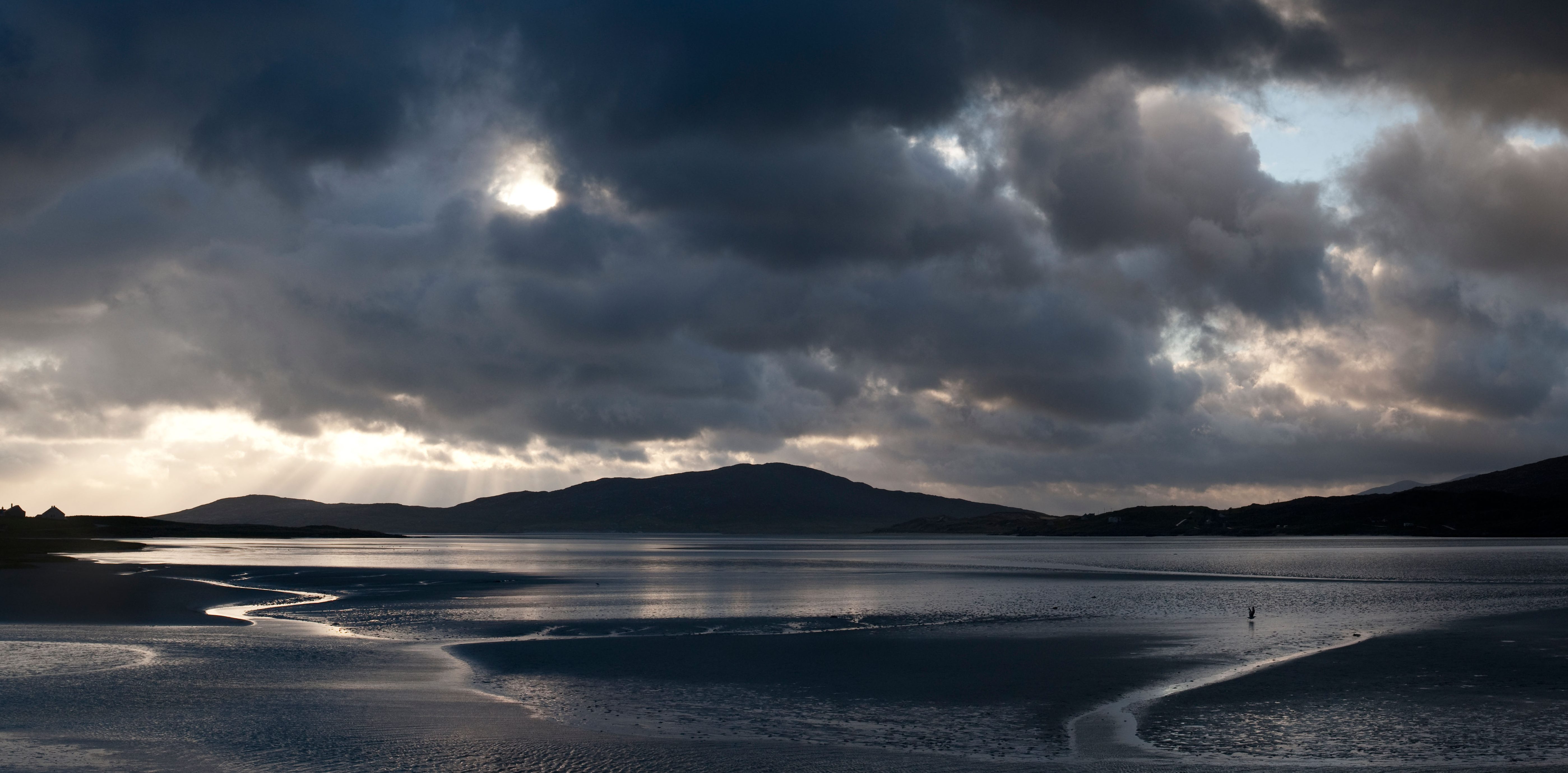
Exquisite houses, the beauty of Nature, and how to get the most from your life, straight to your inbox.
You are now subscribed
Your newsletter sign-up was successful
We went swimming in the sea last week, on the hottest bank-holiday Monday in recorded history. From Beachy Head to Bangor, from Yarmouth to Argyll, the country lay under a purging sun set in a blue sky.
When I tuned in to the radio, the weather forecaster explained that the astonishing high summer sizzle would last a couple more days, affecting the whole of Britain. Except, she added as an afterthought, for a band of low pressure bringing some rain over the Western Isles.
That is, of course, what you get for holidaying in the Western Isles. Kate flung back the curtains to reveal a solid sheet of thin rain, driven by mist, which had begun to lift by the time breakfast was done. Outside, the midges rose in swarms, prickling at our ears and eyes and making the dogs cry.

Throughout the day, various parties clobbered up and disappeared into the mist. After lunch, the last of us set off for the beach, windscreen wipers at medium throb. That’s when we heard about the heatwave paralysing the rest of the country.
The young people decided, wisely, to run to the sea instead, tearing across the machair and over the dunes. The water was greenish-grey, flecked with long strands of weed.
I took the spade and trudged up the sand to the Mysterious Bone, spotted the day before, a salt-washed monster the size of a washing machine and the shape of a Hula Hoop, which may or may not have been a whale’s vertebrae.
'Barnaby waved a diagram over his head and walked us through the Reel of the 51st'
We have dredged strange bones and curious skulls from these sands before. One was the brain pan of a dolphin, with its long maxillary bone like the handle of a carving knife, cranium thin as card and brittle as a bird’s skull. Even its teeth were hollow.
Exquisite houses, the beauty of Nature, and how to get the most from your life, straight to your inbox.
Another we strapped to the radiator grille of the van for a year, like marauding Goths, challenging anyone and everyone to identify it, given its origin and the assurance that it was nothing more exotic than a common British mammal. The skull, which was larger than a sheep’s and smaller than the head of an ox, happily defied identification. Its eye sockets were huge. It belonged, we would reveal at last, to a common seal.
I worked up a sweat, the rain trickling down the back of my neck, digging around the bone. It was clear that whatever part of it was exposed to the weather, another larger part lay firmly embedded and immovable. I risked breaking the spade trying to lever it up, so I abandoned the project, hauled on my trunks and joined the others in the sea. The water was very cold, very clear and slightly warmer than the outside air.
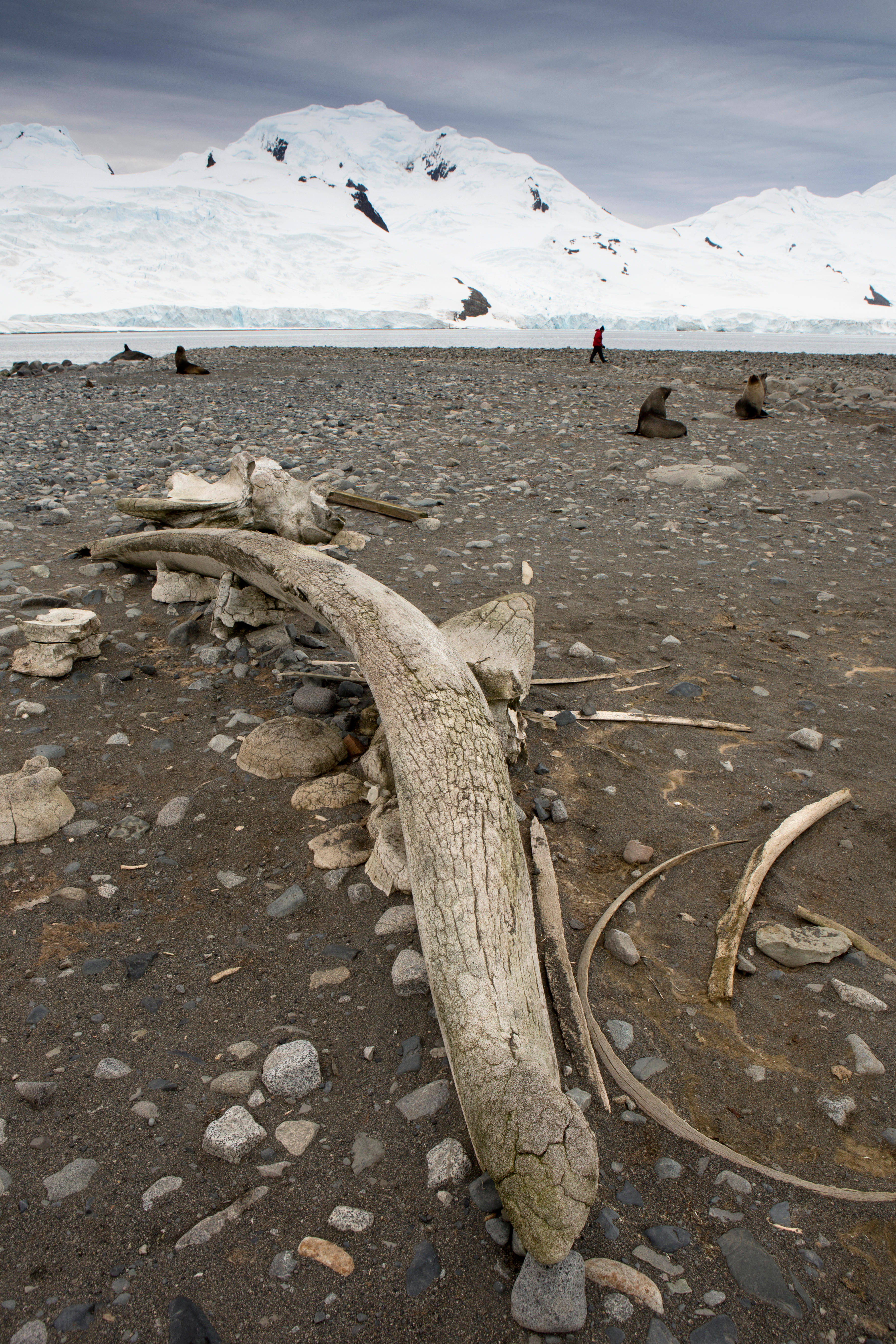
We were 14 in the house. A dozen friends came over to feast and dance in the old garage and, for the rest of the afternoon, we toiled over the festive board, roasting chickens and rolling meatballs, grilling courgettes and onions, fluffing up the rice. When the friends arrived, dripping, out of the darkness, we set to with cheerful libations and wound up in the ceilidh room after supper.
Parents with children, many of them grown, old friends, godparents and godchildren, people we’ve met here year after year, drawn up in two lines. ‘It really is easier,’ said Sophia sternly, ‘when the men and women stick to their own line.’
Barnaby waved a complex diagram over his head and walked us through the Reel of the 51st as Harry checked the playlist on his phone. And then we were away – skirts flying, feet stamping, hands clapping – beautiful children, beautiful friends, proceeding down the line, as outside the wind soughed in the chimneypots and the rain pooled, shining, in the yard.
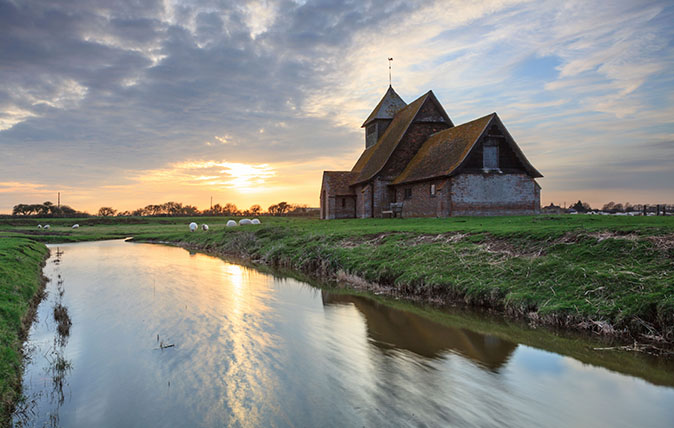
Jason Goodwin: 'On our watch, the natural glories of our island have been atrociously depleted'
Our columnist Jason Goodwin laments the staggering decline of British wildlife and the depletion of our island's natural glories.

Credit: Alamy
Jason Goodwin: On wardrobes, spontaneous combustion and burning Vladimir Putin
Our columnist takes his life into his own hands by witnessing the ceremonial destruction of Russian premier Vladimir Putin.
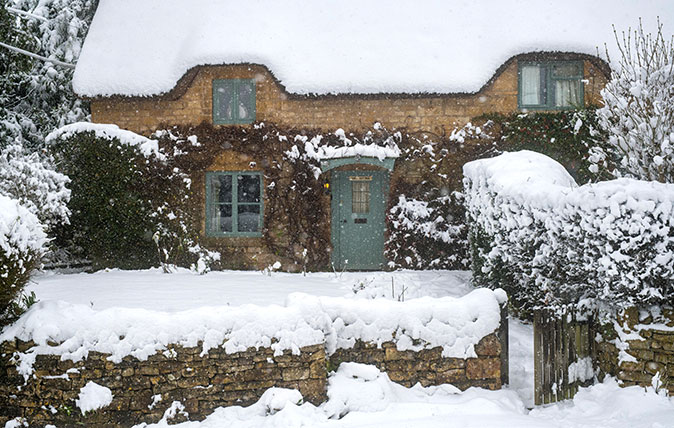
Credit: Tim Gainey / Alamy Stock Photo
Jason Goodwin: ‘The only sounds were the yawning of dogs, the spitting of logs in the fireplace and the occasional papery gulp of somebody turning a page’
Snowed in and without power, Jason Goodwin was left to live a medieval lifestyle that was rejuvenating and romantic... but

Credit: Alamy
Jason Goodwin: 'We have books all over the floors and carpets on the furniture'
Our columnist Jason Goodwin talks about jam jars, duvets and the books which are taking over his house.
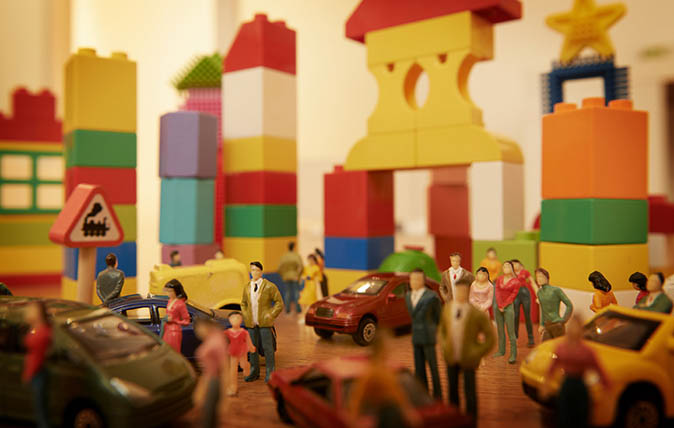
Jason Goodwin: ‘The washing-up is being done by a hulking fellow who, moments ago it seems, knelt on a chair at the kitchen table’
Jason Goodwin looks at his nearly-fully-grown children and wonders how it all came to this. (In a good way.)jas
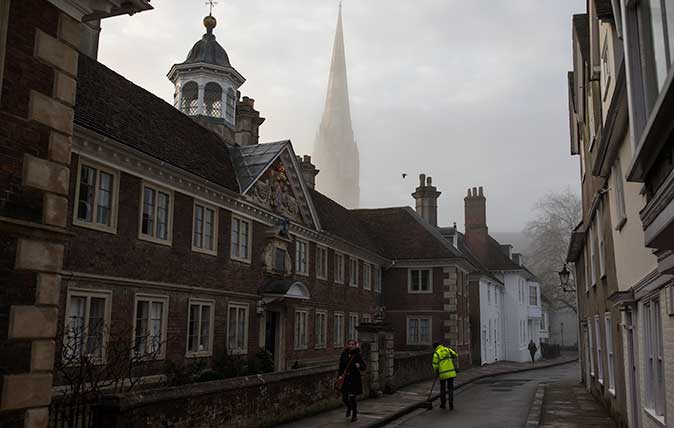
Credit: Getty
Jason Goodwin: 'There was nothing there. The original message from St Petersburg, Sergei’s emails, the thank-you email. All gone.'
Our columnist Jason Goodwin recounts a chilling tale of his own brush with the Russians in Dorset.
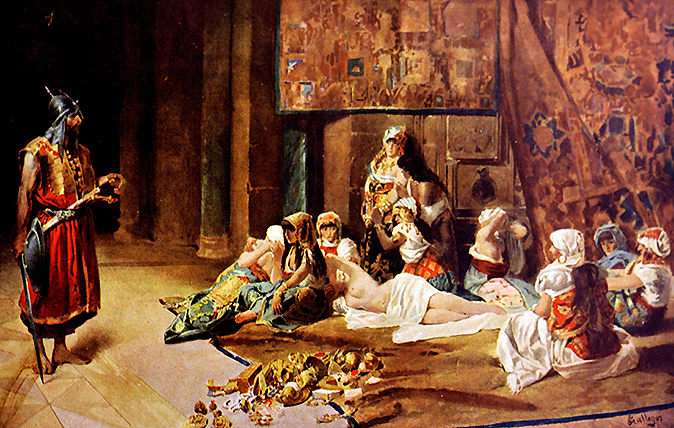
Jason Goodwin: The upside of life in a harem, and modern-day slavery on the King's Road
Our columnist Jason Goodwin considers the realities of everyday existence for the women kept in 18th century Ottoman harems.